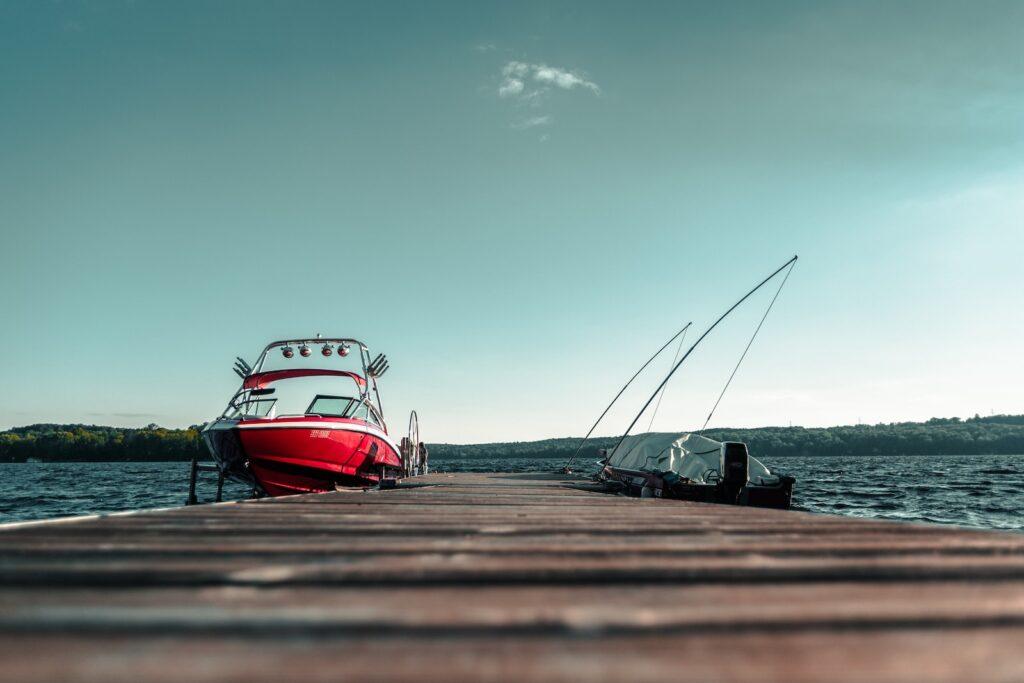How Often Should a Boat Impeller Be Replaced
You see, the impeller, a tiny but mighty part of your boat engine, is often overlooked. Yet, it’s like the beating heart of your vessel, pushing coolant through the engine, and keeping everything running smoothly.
Key Takeaways:
- Boat impellers should typically be replaced every 2–3 years as part of regular maintenance. However, this can vary based on the type of boat, the make and model of the engine, and how often the boat is used.
- The need for replacement can be more frequent if the boat is used extensively or in harsh conditions. Boats that are used in saltwater, for instance, may require more frequent impeller changes due to the corrosive nature of salt.
- Regular inspection of the impeller is crucial. Even if the 2–3 year timeframe has not been reached, an impeller showing signs of wear, such as cracks, stiffness, or missing blades, should be replaced immediately to prevent engine overheating and potential damage.
How often should a boat impeller be replaced? Well, keep your lifejacket handy because we’re about to dive deep into the nitty-gritty of boat maintenance. Get ready to make some waves!
How often do you replace boat impeller
You’ll want to replace your boat impeller every one to two years, or every 100 to 300 hours of operation, whichever comes first. But, remember, this is just a general rule of thumb. Factors like how often you use your boat, the conditions in which it’s used, and the type of water you’re navigating (saltwater or freshwater) can influence this timeline.
If your sailing sessions look more like “The Perfect Storm” than a tranquil sunset cruise, your impeller could wear out faster. Likewise, sailing in saltwater could speed up corrosion, leading to more frequent replacements.
You can also check Youtube video we have found:
Here’s the thing: leaving an impeller change until it fails isn’t the best approach. Why? Because if the impeller fails while you’re out on the water, your engine could overheat, leading to potential damage that will have your wallet weeping.
(Tip: Keep a spare impeller onboard! It’s a low-cost item that can save you a ton of hassle if your current one gives up the ghost when you’re miles from shore.)
Remember: an ounce of prevention is worth a pound of cure — especially when we’re talking about your favorite water toy. Regular maintenance, including impeller replacements, will keep your boat running smoothly, so you can focus on enjoying those sun-kissed waves.

The general recommendation is that boat impellers should be replaced every two to three years. However, this may vary depending on how heavily the boat is used and the particular impeller. If the boat is used frequently and in salt water, it may be a good idea to replace the impeller annually.
It is also important to inspect the impeller regularly and replace it if any parts appear to be damaged or worn. If the impeller becomes clogged or shows signs of abrasion, it should be replaced immediately. If the boat is used in fresh water and not heavily, the impeller may last longer. In any case, it is best to consult with a professional mechanic or boat servicing expert to determine the best replacement schedule for a particular boat.
How do I know if my impeller needs replacing?
If your impeller is not functioning correctly, or is showing signs of wear and tear, it may need to be replaced. Signs of wear and tear may include cracks or visible signs of erosion. You may notice a decrease in the performance of your pump or an increase in noise levels. If you are unsure, it is best to consult a professional to determine whether your impeller needs to be replaced.
- Overheating Engine: If the temperature gauge on your dashboard is starting to look like it’s got a fever, your impeller might be the culprit. An overheating engine can be due to the impeller failing to circulate coolant properly.
- Reduced Water Flow: The impeller’s job is to push water through the cooling system. So, if you’re noticing a decrease in the water flow coming out of your exhaust, it might be time for a new impeller.
- Poor Engine Performance: If your boat engine seems to lack its usual “oomph”, or you’re experiencing sudden drops in speed or power, it could be due to an impeller not doing its job properly.
- Visual Wear or Damage: This one’s a bit more hands-on. If you do an inspection and see that the impeller’s blades are cracked, broken, or missing, then it’s definitely time for a replacement.
- You Can’t Remember the Last Replacement: If you’re scratching your head trying to remember when you last replaced your impeller, it’s probably overdue for a change. Don’t risk it, just replace it!
You can run a few tests. You should check the impeller for any noticeable signs of damage, such as cracks or erosion. You might check the performance of your pump and listen for any unusual noises. If the performance of your pump is not up to par, or if you hear any unusual noises, then it is likely that your impeller needs to be replaced.
It is a type of fan or pump used to move air or liquid through a system. In boats, impellers are typically used to move cooling water through the engine. They consist of a series of curved blades that spin within a round housing. As the impeller blades spin, they create a vacuum that draws in cooling water from the lake or ocean and then pumps it back out.
Factors That Determine How Often Should a Boat Impeller be Replaced

The frequency of impeller replacement depends on a variety of factors, such as the type of impeller, the application it is being used for, the operating environment, and the rate of wear. The type of impeller will determine how often it needs to be replaced, as some are designed to last longer than others. The application will also affect the frequency of replacement, as the impeller may need to be replaced more often if it is used in a more aggressive environment. The rate of wear will determine the frequency of impeller replacement, as a worn impeller will need to be replaced more often than one that is in good condition.
Age of the Boat
The age of the boat is an important factor to consider when determining how often to replace the impeller. How often should a boat impeller be replaced? We think that it should be replaced at least every two years for boats that are less than five years old. For boats that are older than five years, it is recommended to replace the impeller annually. If you notice any signs of wear or damage to the impeller, it should be replaced immediately.
Type of Boat
The type of boat you own can also affect how often the impeller should be replaced. For example, boats that are used in saltwater are more susceptible to corrosion, so they should have their impellers replaced more frequently than those that are used primarily in freshwater. Boats that are used frequently or for extended periods of time should have their impellers replaced more often than boats that are used less often.
Type of Impeller
The type of impeller you have installed can also affect how often it should be replaced. Aluminum impellers should be replaced every two years, while stainless steel impellers can last up to five years. Composite impellers can last up to 10 years if they are properly maintained.
Maintenance and Usage
In addition to the age, type, and material of the impeller, the amount of maintenance and usage should also be taken into consideration when determining how often it should be replaced. For instance, if the impeller is regularly inspected for damage or wear and is properly lubricated, it can last significantly longer than if it is not properly maintained. The more often the boat is used, the more often the impeller should be replaced.
Signs of Impeller Wear and Damage

Impellers are a critical component of many pumps and other machinery and need to be checked regularly for signs of wear and damage. Signs of impeller wear and damage include erosion, corrosion, cavitation, and excess noise. Erosion is caused by particles in the liquid that wear away the surface of the impeller.
Corrosion occurs when the impeller is exposed to material that corrodes the metal. Cavitation occurs when the liquid pressure drops so low that the impeller can’t draw in enough liquid to create lift, resulting in air bubbles. Excess noise is caused by wear on the impeller blades or other parts of the pump.
Cracks or Chips
If the impeller blades have any visible cracks or chips, it is a sign that the impeller needs to be replaced.
Excessive Vibration
If the engine is vibrating excessively, it could be a sign that the impeller is damaged or worn out and needs to be replaced.
Poor Performance
If the engine is not performing as well as it used to, it could be a sign that the impeller needs to be replaced.
Overheating
If the engine is overheating, it could be a sign that the impeller is not circulating cooling water properly and needs to be replaced.
FAQs
I only use my boat for special occasions. Do I still need to replace my impeller every 1–2 years?
Yes, indeed! Even if your boat spends most of its time docked, impellers can still deteriorate over time. This is due to the rubber hardening and losing its elasticity. So, regardless of how often you hit the water, it’s best to stick to that 1–2 year replacement guideline. Think of it as a birthday gift to your boat!
Can I replace the boat impeller myself, or should I take it to a professional?
While it’s totally possible to replace an impeller yourself (with the right tools and a handy YouTube tutorial or two), if you’re not mechanically inclined or comfortable doing so, it’s definitely worth it to get a professional to do it. Remember, messing up could mean a marooned boat, and nobody wants to play out a real-life ‘Cast Away’ scenario.
Is it a bad idea to run my boat if the impeller is damaged?
Short answer — yes! If your impeller is damaged, your engine can overheat and potentially suffer serious damage. Think of the impeller as the heart of your engine. If it’s not pumping, things can go south real quick. So, if you suspect your impeller is on its last leg, it’s best to get it replaced ASAP to keep your boat sailing smoothly.
